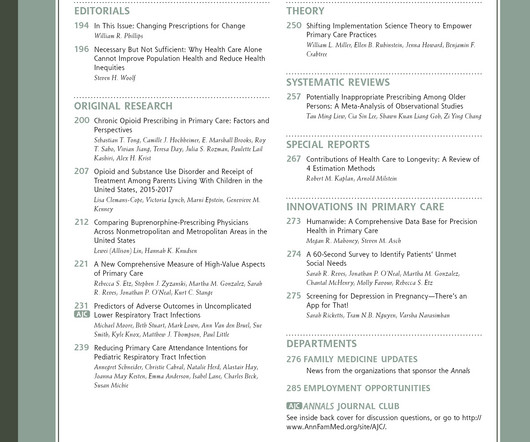Outcomes of Guidelines from Health Technology Assessment Organizations: A Systematic Mixed Studies Review [Systematic review, meta-analysis, or scoping review]
Annals of Family Medicine
NOVEMBER 20, 2024
Population Studied: Family physicians, general practitioners, and patients. The full-text screening started with 345 studies and resulted in 120 included observational studies (21 qualitative, 94 quantitative, and 5 mixed methods). positive, neutral, and negative impact) are presented for 17 types of outcomes.












Let's personalize your content